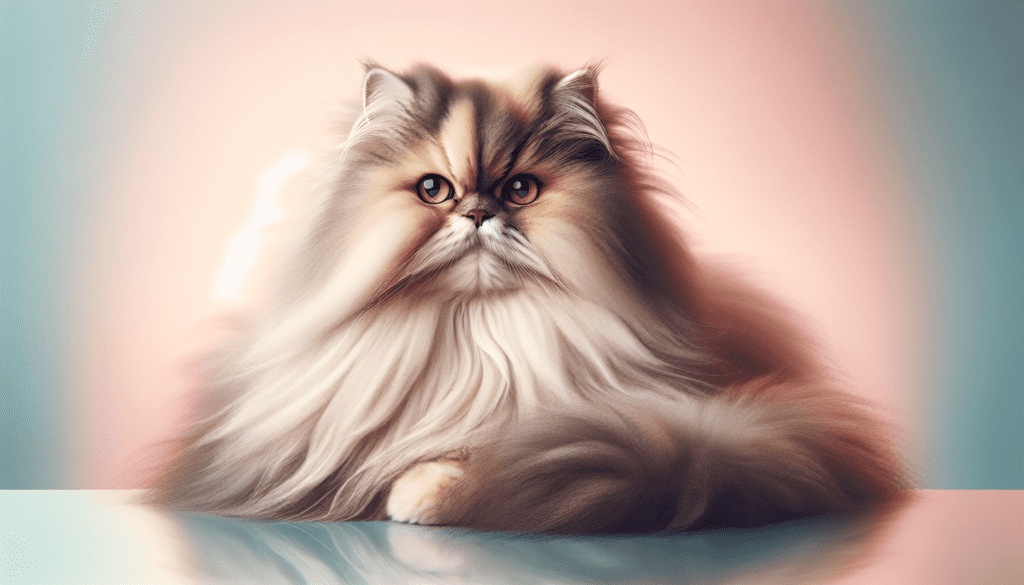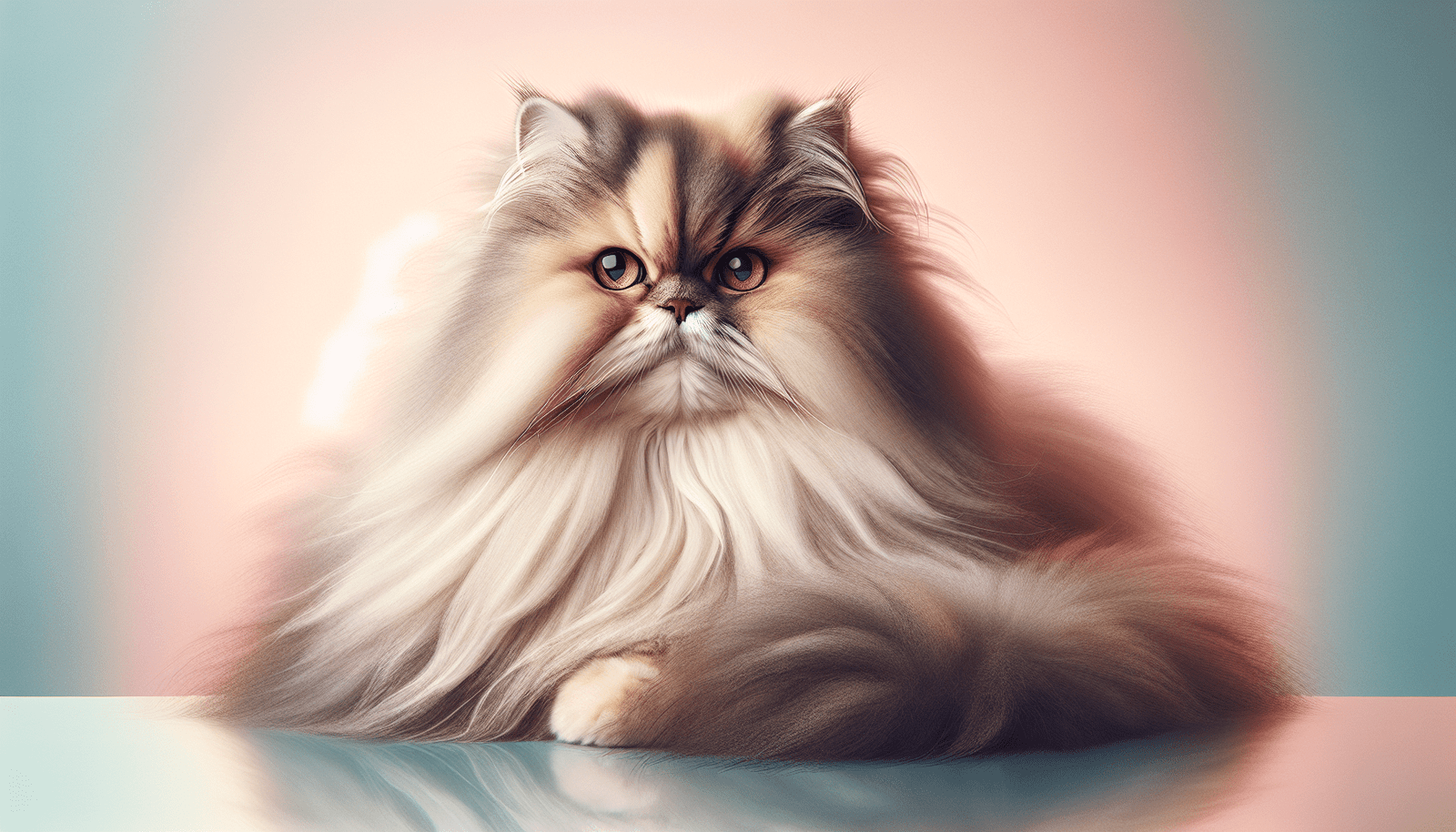If you’ve ever been curious about the average lifespan of Persian cats, then you’re in for a purr-fect treat! In this insightful article, we will explore just how long these adorable felines tend to live, from the moment they enter your life with their luxurious coats and charming personalities. So, get ready to learn all about the fascinating world of Persian cats and the secrets behind their longevity.
Average Lifespan of Persian Cats

What is a Persian cat
A Persian cat is a popular breed of domestic cat known for its long and luxurious coat, sweet and gentle temperament, and distinctive facial features. These cats have a unique appearance, with a round face, small ears, and big, expressive eyes. They are often described as regal and elegant, making them a favorite choice among cat lovers worldwide. Persian cats are known for their calm and laid-back personalities, which makes them excellent companions for families and individuals alike.
Factors affecting the lifespan of Persian cats
There are several factors that can affect the lifespan of Persian cats. Genetics plays a significant role, as certain health issues can be more common in this breed. Additionally, the overall health and well-being of the cat, as well as the quality of care it receives, contribute to its longevity. Environmental factors such as diet, exercise, and living conditions can also impact a Persian cat’s lifespan. Regular veterinary check-ups, preventive care, and early detection of potential health problems can help ensure a longer and healthier life for these furry friends.
Healthy lifespan of Persian cats
On average, Persian cats have a lifespan of 12 to 16 years. However, with proper care and attention, some individuals can live well into their late teens or even early twenties. Ensuring that your Persian cat receives regular veterinary care, a balanced diet, and a safe and stimulating environment can help promote a healthy and fulfilling life for your feline companion.
Life expectancy of Persian cats
The life expectancy of Persian cats can vary from one cat to another. While genetics can play a role, lifestyle factors and overall health are crucial determinants. By providing a loving and nurturing environment, a healthy diet, and regular exercise, you can increase the chances of your Persian cat living a long and happy life. Additionally, early detection and treatment of any potential health issues can significantly impact the cat’s lifespan.

Longest living Persian cats
While the average lifespan of Persian cats falls within the 12 to 16-year range, there have been cases of individuals surpassing these expectations. Some Persian cats have lived well into their twenties, providing a testament to the impact of proper care and attention. By implementing a well-rounded approach to their health and well-being, these cats have beaten the odds and brought joy to their owners for many years.
Common health issues affecting lifespan
Persian cats are prone to specific health issues that can affect their lifespan. The most common ones include:
-
Polycystic Kidney Disease (PKD): This genetic condition leads to the formation of cysts in the kidneys, which can cause kidney failure if left untreated.
-
Respiratory problems: Due to their shortened noses, Persian cats can experience breathing difficulties, which may lead to respiratory infections or exacerbated symptoms of other conditions.
-
Eye problems: The unique facial structure of Persian cats makes them susceptible to eye-related issues, such as excessive tearing, corneal ulcers, and entropion (inward rolling of the eyelids).
-
Dental problems: Persian cats are prone to dental issues, including periodontal disease and tooth decay. Regular dental care is essential to prevent pain and discomfort.
Preventive measures for increasing lifespan
To increase the lifespan of your Persian cat, it is crucial to take preventive measures to address potential health issues. Regular veterinary check-ups and routine screenings for hereditary conditions, such as PKD, can help detect and manage health problems at an early stage. Providing a clean and stress-free environment, maintaining proper dental hygiene, and ensuring a balanced diet can also contribute to a longer and healthier life.
Tips for extending the lifespan of Persian cats
To extend the lifespan of your Persian cat, consider the following tips:
-
Proper nutrition: Feed your cat a high-quality diet specifically formulated for Persians. Ensure that it is balanced and provides all necessary nutrients to support their overall health.
-
Regular grooming: Persian cats require regular grooming to prevent matting and maintain the health of their coat. Brush their fur daily to remove tangles and reduce the risk of skin infections.
-
Dental care: Implement a dental care routine that includes regular brushing of your cat’s teeth and providing dental treats or toys to promote oral health.
-
Environmental enrichment: Provide an enriching environment with toys, scratching posts, and interactive playtime to keep your Persian cat physically and mentally stimulated.
-
Indoor lifestyle: Consider keeping your Persian cat indoors to protect them from potential dangers, such as accidents, diseases, and encounters with other animals.
-
Stress reduction: Minimize stress factors in your cat’s life by providing a calm and quiet environment, especially during times of change or disruption.
Nutritional requirements for a longer lifespan
Proper nutrition is essential for the overall health and longevity of Persian cats. Their diet should consist of high-quality, commercially available cat food that is specifically formulated for Persians. Look for products that contain a balanced blend of proteins, fats, and carbohydrates while avoiding excessive fillers and artificial additives. Additionally, ensure that your cat has access to fresh, clean water at all times to support proper hydration.
Conclusion
The average lifespan of Persian cats ranges from 12 to 16 years, but with adequate care and attention, they can live well into their late teens or even early twenties. By understanding the factors that affect their lifespan, taking preventive measures to address common health issues, and providing a nurturing and stimulating environment, you can help ensure a long and fulfilling life for your Persian feline companion. Remember to consult with your veterinarian for personalized advice and guidance on how to best care for your beloved Persian cat.

